Why Does My Dog Cough After Drinking Water? (Dog Hacks)
Like us, dogs cough reflexively when their airway feels irritated. Coughing helps our four-legged friends get rid of contaminants that make their way into the respiratory tract. It keeps breathing passages free and clear of potentially dangerous blockages.
Sometimes, you may notice your dog coughing after a long gulp of water. In most cases, this is perfectly natural. If a small amount of water makes its way into your dog’s airway, it may trigger a few coughs to clear the passage again.
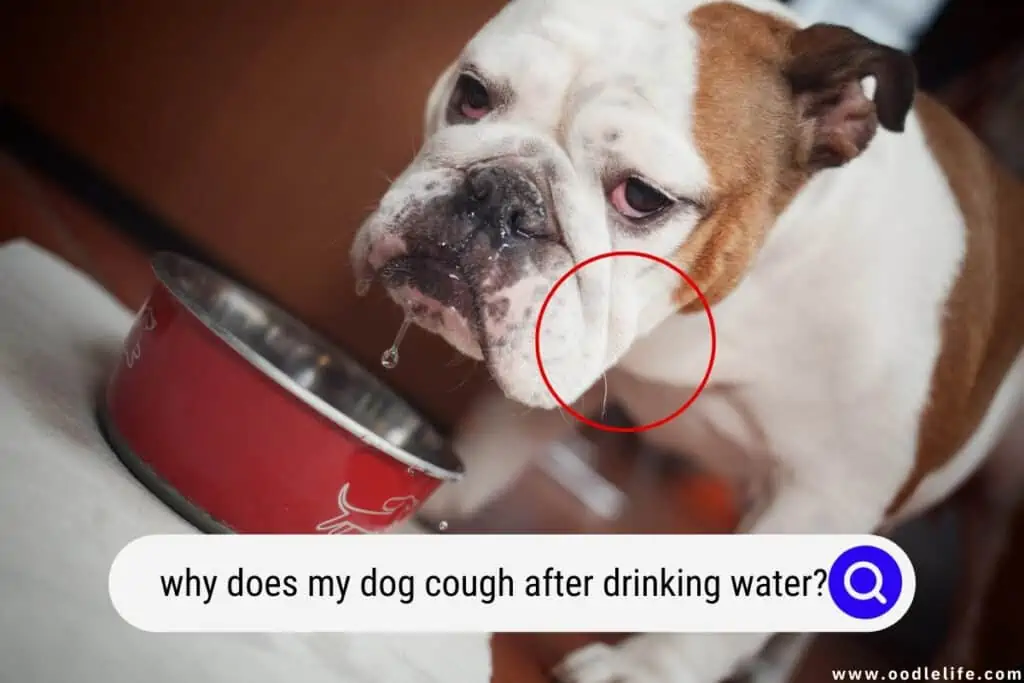
However, if your dog is coughing more intensely or frequently than usual, it may be a cause for concern.
If you notice your dog hacking at its bowl, you may be wondering: why does my dog cough after drinking water?
Here, I’m going to discuss the top reasons you might see your dog coughing after a long sip of water. Read on to learn more about what to do if you notice your dog coughing after drinking and when it might be time to see your vet.
Why Does My Dog Cough After Drinking Water?
There are a wide variety of reasons why your dog might be coughing after a drink of water, ranging from relatively benign to downright dangerous. Knowing the root cause of your dog’s coughing can help you decide on a safe and effective treatment plan when necessary.
Drinking Too Fast
If you’ve ever drank a glass of water too fast, you may have experienced water going down your windpipe instead of your esophagus. This can lead to uncomfortable coughing and sputtering as your body tries to clear its airways.
Dogs can have a similar issue when they drink too quickly. A small flap called the epiglottis protects your dog’s windpipe, or trachea, as it eats and drinks. The epiglottis closes to prevent food or water from entering the lungs.
When your dog laps at its bowl too quickly, the epiglottis may not function properly. Water can make its way down the air tract and irritate the tissues there. Muscles will automatically contract to expel the fluid, causing a coughing fit.
Drinking too quickly may seem harmless, but it can lead to more issues than just coughing. Your dog takes in more air with fast lapping motions, which then makes its way into the gut and stomach. Without intervention, excessive air intake can cause life-threatening problems such as abdominal distension.
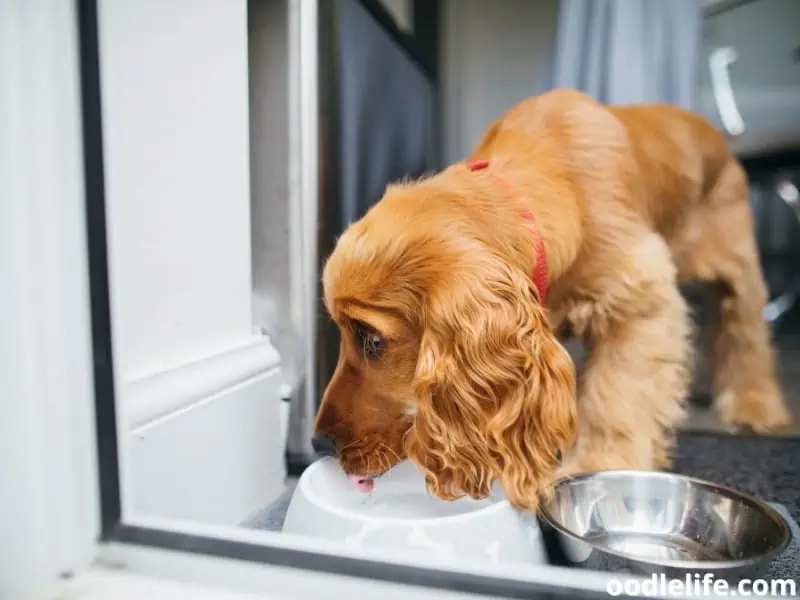
Airway Blockages
Water isn’t the only thing that can block a dog’s airways and lead to coughing. Solid materials can also get lodged in the trachea, triggering muscle spasms and coughing to expel foreign objects.
In some cases, a piece of food or kibble may make its way past the epiglottis when your dog is eating quickly. In most cases, coughing will get rid of food particles before they pose a threat to the lungs or airways.
However, in some instances, materials can get lodged in the mouth, throat, or esophagus. Treats such as bone or rawhide may splinter, which can cause a dangerous obstruction that leads to coughing and hacking after drinking.
Splinters are especially common with cooked bones, as they are drier and more brittle than raw bones. Never give your dog leftover bones after a meal. Instead, opt for either raw bones or commercially manufactured options.
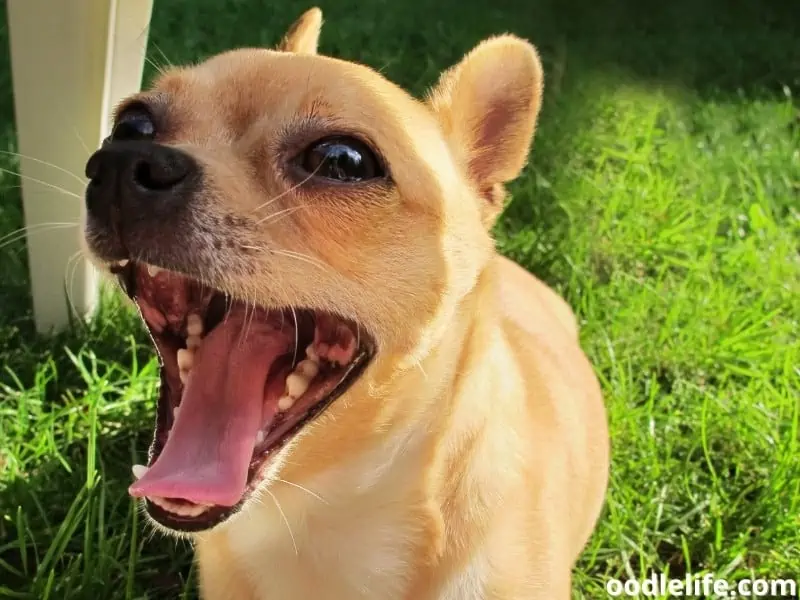
Colds and Illnesses
If your dog comes into regular contact with other pets, there’s a chance that it could contract an illness that causes coughing. Certain respiratory diseases irritate the throat and encourage coughing to spread more efficiently.
Kennel cough is one of the most common ailments affecting domesticated dogs, and it can lead to a hacking fit after drinking. Also known as canine tracheobronchitis, this disease can result from infection with Bordetella bronchiseptica, adenovirus, or parainfluenza virus.
Many new shelter dogs come home with cases of kennel cough. Your dog can also catch it from interacting with other pups at the dog park or by coming into contact with contaminated surfaces in pet-friendly areas.
Kennel cough can cause the windpipe to appear inflamed and irritated. You may see discharge around the eyes, nose, or other mucus membranes. Fortunately, most cases of kennel cough resolve themselves.
Ensure your pup gets plenty of fluids, rest, and some TLC.
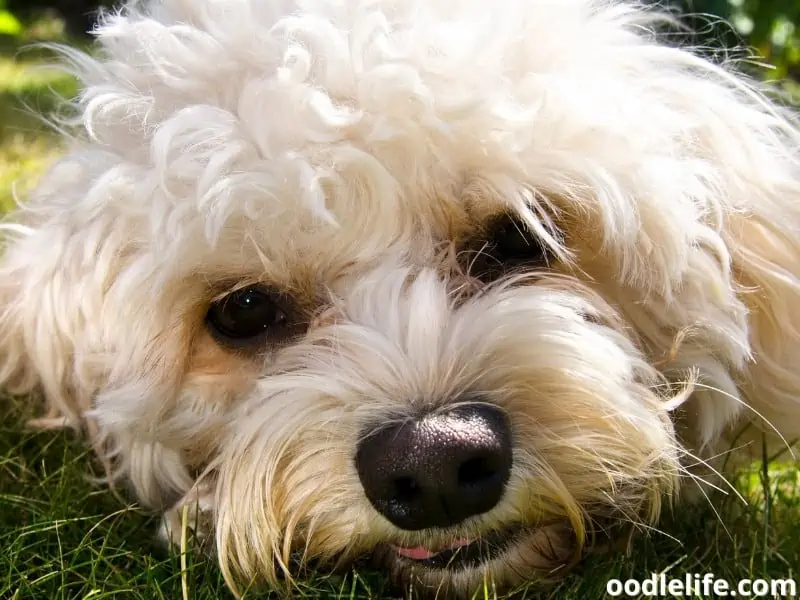
Hypoplastic Trachea
In some cases, throat and trachea issues may be unavoidable. Tracheal hypoplasia is a genetic condition that can affect any dog. However, it’s especially common in brachycephalic breeds like Bulldogs, Boxers, and Pugs.
A hypoplastic trachea is underdeveloped, meaning airways are smaller and narrower than they should be. The cartilage rings and muscles surrounding the esophagus don’t support the windpipe enough to allow food and water to pass easily.
When a dog with a hypoplastic trachea drinks, it is more likely to cough and sputter due to its narrow esophagus. Without enough room for water to flow, fluids may get pushed back up the digestive tract or trickle down the wrong tube.
While there’s no cure for hypoplastic trachea, owners with affected dogs can take steps to reduce symptoms. Keeping your dog at a healthy weight and monitoring feedings can help to reduce coughing fits. Your vet may also be able to prescribe cough suppressants or other medications to ease pain and discomfort.
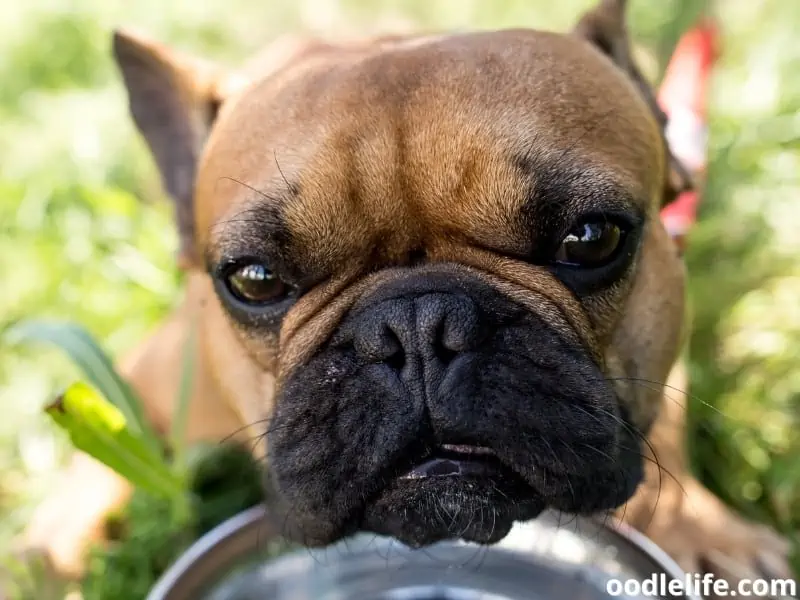
Collapsed Trachea
Another common issue amongst brachycephalic breeds is a collapsed trachea. When the throat muscles can no longer hold their shape, the windpipe will weaken and collapse. The space inside will get tighter and narrower, restricting the food, water, and air intake.
When the trachea collapses, the epiglottis is often unable to function properly. It can no longer seal off airways during eating and drinking, leading to coughing fits. It also increases the likelihood of foreign matter making its way into the lungs.
Tracheal collapse can be either partial or complete and can happen unexpectedly. If you notice your dog is having difficulty breathing, it’s a good idea to schedule a trip to the vet. Diagnosing a collapsed trachea early on makes preventative care and treatment easier.
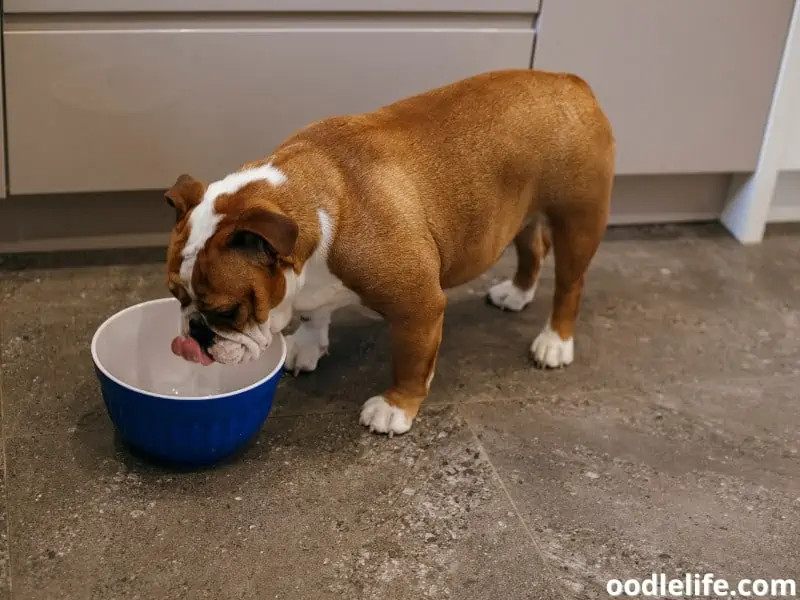
Reverse Sneezing
Reverse sneezing is a common issue in breeds with a short snout or muzzle, especially after drinking water. Dogs suck in air instead of blowing it out through the nose, which can cause sputtering and coughing while drinking.
A reverse sneeze may sound concerning, but in most cases, it should be no cause for concern. Many dogs regularly reverse sneeze without any adverse side effects. In some cases, however, increased air intake may lead to a distended belly.
If you notice your dog seems to have difficulty breathing, it’s always a good idea to consult your vet. A reverse sneeze can look very similar to symptoms of more serious issues such as a collapsed trachea.
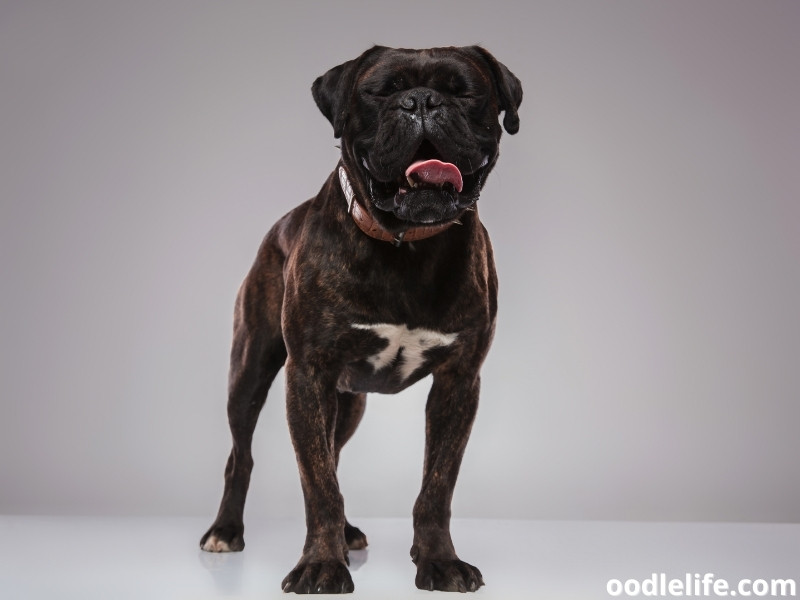
What Should I Do If My Dog Starts Coughing After Drinking?
If your dog regularly coughs after drinking water, there are some tricks that you can try to reduce or eliminate hacking fits.
Train Your Dog
In many cases, dogs that cough after drinking are simply lapping too fast. You can train your dog to drink more slowly by restricting their water supply or adding objects such as ice or toys to their bowl.
You can also find specialized slow feeders designed to release just a small amount of food or water at a time.
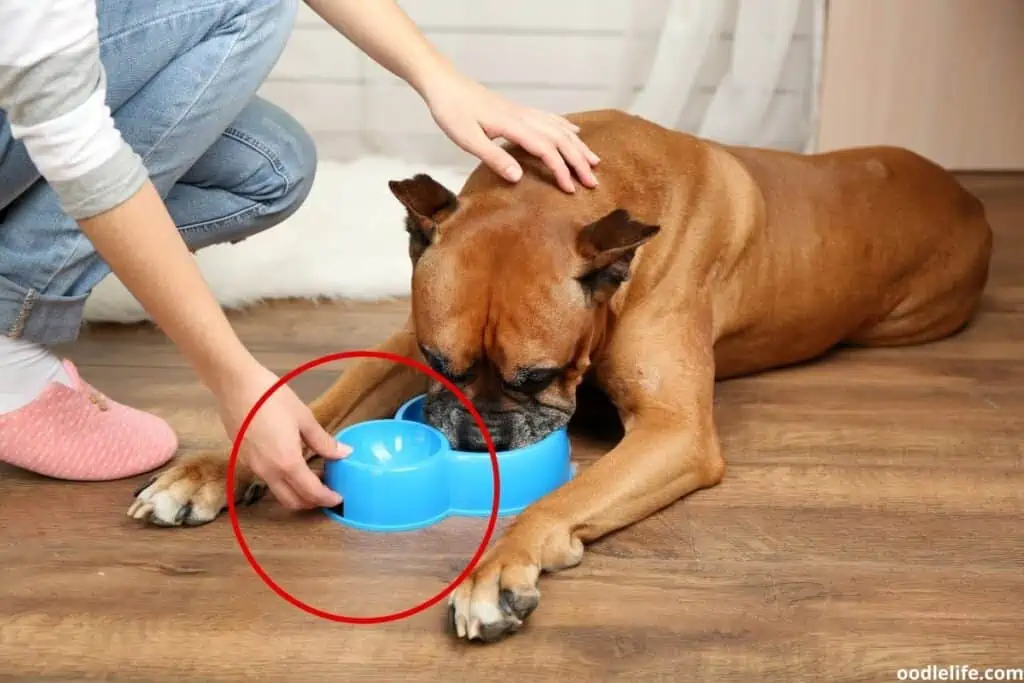
Quarantine Infected Pets
If you have multiple pets in your household, quarantining sick animals can help protect the healthy ones. You should also quarantine any pets you bring home from a breeder, pet store, or shelter.
There’s a chance that they may carry colds such as kennel cough into your home. It’s best to keep new pets separated for at least two weeks to allow time for any illnesses to pass.

Visit Your Vet
If your dog’s breathing doesn’t clear up in a matter of days, it’s a good idea to schedule a visit with your vet. They can tell you whether your dog’s cough is a cause for concern and help you come up with an appropriate treatment plan.
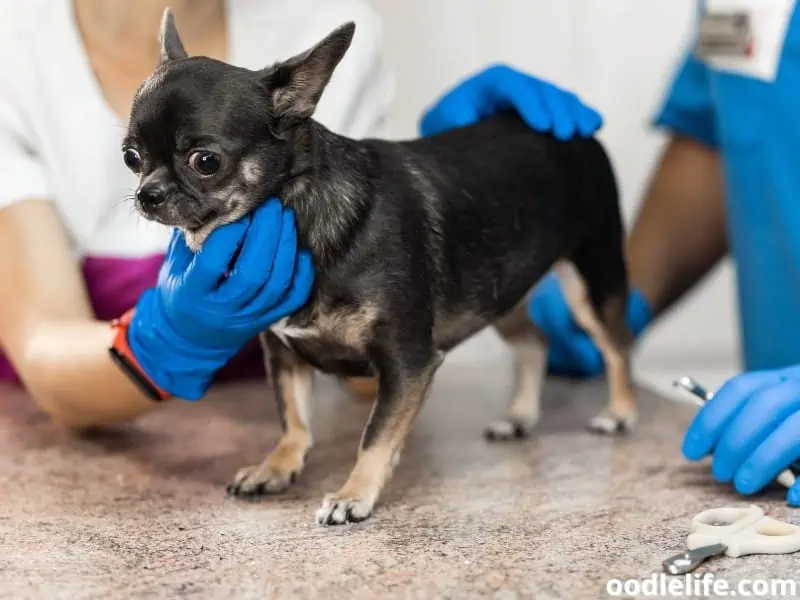
Wrapping Up
If your dog is hacking after a sip from its water bowl, you may be asking yourself: why does my dog cough after drinking water?
There are a wide variety of reasons your dog may cough after drinking, ranging from water in the windpipe to a hypoplastic or collapsed trachea. While coughing is often no cause for concern, intense or prolonged bouts may merit a visit to the vet.